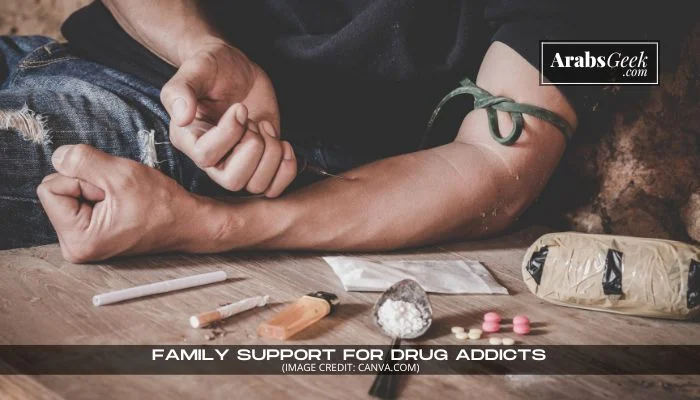Watching a loved one struggle with addiction can be heart-wrenching. The journey towards recovery is often a long road, filled with challenges. But, there’s hope and help. In this crucial battle, “Family Support for Drug Addicts: Understanding the Importance and Best Practices” offers a guiding light. The right approach, understanding, and support from family can make a significant difference. It’s not just about standing by your loved one; it’s about engaging in a way that’s both effective and nurturing. Let’s explore the compassionate yet powerful strategies that can change the tide in this fight against addiction.
Table of Contents
Understanding the Role of Family in Addiction Recovery
The impact of drug addiction extends beyond the individual; it profoundly affects the entire family. Recognizing the pivotal role family plays in recovery is the first step. Family support can be a major factor in motivating someone to seek treatment and stay in recovery.
1. Acknowledging the Problem | Family Support for Drug Addicts
Admitting there’s an addiction problem in the family can be tough, but it’s a critical starting point. Denial can be a significant obstacle. Accepting the situation allows the family to move forward towards finding solutions.
- Unlock Exclusive Financial Insights! Click Over to EntrepreneursPilot.com Now!
- Unlock a Treasure Trove of Must-Read Finance Articles! Click Here to Dive into Our Homepage’s Wealth of Knowledge!
- Unlock Exclusive Business Opportunities! 🚀 Connect with Us Now at [email protected]!
2. Educating Yourself About Addiction
Understanding addiction as a complex and often misunderstood disease is vital. It’s not a choice or a moral failing. Educating yourself about the nature of addiction, its effects, and the process of recovery can help in providing appropriate support.
3. Communication is Key | Family Support for Drug Addicts
Open and honest communication within the family is essential. It’s important to talk to your loved one about your concerns without judgment or blame. Active listening is equally important to understand their perspective and struggles.
4. Setting Healthy Boundaries
Supporting a loved one doesn’t mean enabling their addiction. It’s important to set and maintain healthy boundaries to protect yourself and encourage your loved one to take responsibility for their actions.
5. Seeking Professional Help | Family Support for Drug Addicts
Dealing with addiction is challenging, and it’s okay to seek help. Professional counselors, therapists, and support groups for families of addicts can provide guidance and support.
6. Taking Care of Your Own Well-being
Supporting a family member through addiction recovery can be emotionally taxing. It’s crucial to take care of your own mental and physical health. Remember, you can’t pour from an empty cup.
7. The Power of Support Groups
Joining a support group can be incredibly beneficial. Groups like Al-Anon or Nar-Anon offer a community of individuals who understand what you’re going through and can share their experiences and coping strategies.
8. Encouraging Treatment and Supporting Recovery
Encouraging your loved one to seek treatment and supporting them through the process is crucial. This might include helping them find a treatment program, accompanying them to appointments, or simply being there to listen.
9. Understanding Relapse as Part of the Process
Relapse can be a part of the recovery journey. It’s important to understand that relapse doesn’t mean failure. Supporting your loved one through relapse involves encouraging them to get back on track and continue their recovery efforts.
10. Celebrating Successes
Acknowledging and celebrating milestones in recovery can be motivating for your loved one. Even small achievements are worth recognizing.
Conclusion | Family Support for Drug Addicts
Battling a family member’s addiction is a challenging journey, but with “Family Support for Drug Addicts: Understanding the Importance and Best Practices,” it becomes a journey you don’t have to walk alone. By understanding addiction, communicating effectively, setting healthy boundaries, seeking professional help, and taking care of your own well-being, you can provide the support your loved one needs to navigate the path to recovery.
Frequently Asked Questions
01. How do I start a conversation with my family member about their addiction?
Begin by expressing your concern in a non-confrontational way, focusing on the effects of their behavior on you and the family, rather than blaming them for their addiction.
02. Should I intervene if I suspect a family member is using drugs?
Yes, it’s important to address the issue. However, consider seeking advice from a professional on how to approach the situation effectively.
03. Can family therapy help in dealing with drug addiction?
Absolutely, family therapy can be a crucial part of the recovery process, helping to heal the family system and improve communication.
04. How can I support my loved one if they relapse?
Offer understanding and encouragement. Focus on the importance of continuing treatment and recovery efforts, rather than dwelling on the setback.
05. What should I do if I feel overwhelmed by my family member’s addiction?
Seek support for yourself. This can be through counseling, support groups, or confiding in trusted friends or family members. Taking care of your own mental health is essential.











